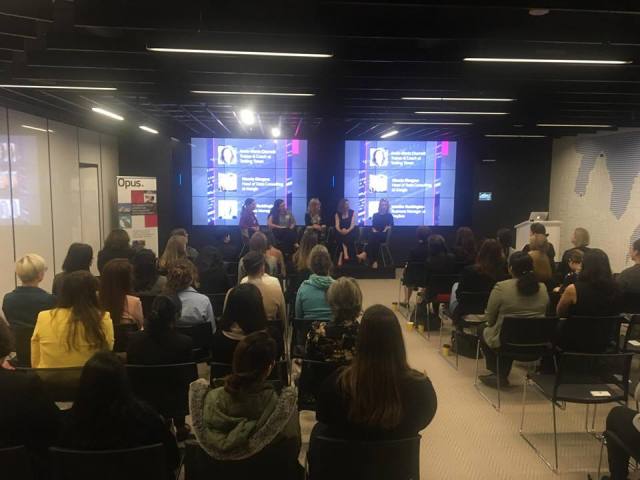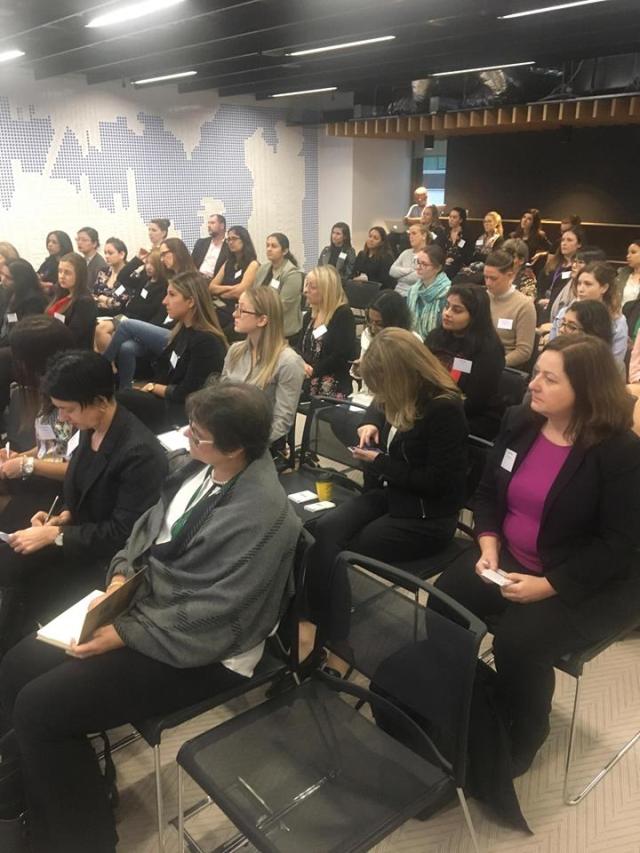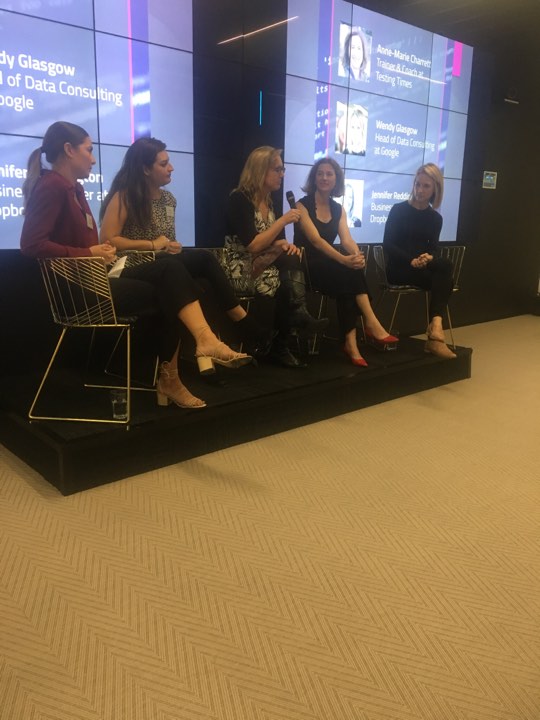What happens when three successful women from Google, Dropbox and Testing Times sit on a panel in front of 65 people who are passionate about women in technology? The answer – a very fruitful discussion about the gender imbalance within the tech industry and great insights into action that can be taken at the individual and organisational level to close the gender gap, which can be applied across all STEMM industries.
………..
I was lucky enough to attend Opus Recruitment’s Women in IT – Leadership Edition event this morning, hosted at the beautiful LinkedIn offices in Sydney’s Martin Place. On the panel was Jennifer Reddington, Business Manager at Dropbox; Anne-Marie Charret, Quality Engineering Consultant, Trainer & Coach at Testing Times; and Wendy Glasgow, Head of Data Consulting at Google.
Unconscious bias…we meet again
The conversation kicked off by talking about unconscious bias. For those following this blog you will remember we introduced this concept a few weeks ago (see here for a refresher). Unconscious bias is arguably the factor that creates the biggest roadblock to achieving gender equality in tech and across all STEMM fields, as it’s hard to change behaviours and biases you don’t even know you’re making. Related to this, the panel brought up the idea of “status-quo bias” – where hiring managers may be reluctant to change the current situation, thereby not taking action to improve female representation in the workplace, as well as “in-group bias” – we tend to favour people ‘like us’, and this has an unrealised impact on hiring and career promotion practices within the tech industry.
…………
It was interesting to hear that Google incorporates bias training into their on-boarding process. For Wendy Glasgow, the biggest impact of this was not identifying what biases she held, but rather the implications of these biases. For example, in male-dominated industries such as tech, having a female’s name or gender on a resume can create unconscious perceptions that that female has a lesser skillset or ability than her male counterparts. A ridiculous, but very real matter of fact. It was pointed out that one organisation aims to combat these implicit assumptions by removing age, gender and any indication of culture, race or religion, from resumes to focus on what truly matters when hiring a candidate – talent. HR practitioners, take note!
Speak up
The panellists highlighted the importance of women speaking up in the workplace to help drive lasting change across the industry and have more women in leadership positions. It’s crucial that women be strong and make their voices heard, even (and especially) if they are the only woman in the room. Jennifer Reddington spoke about the need for open dialogue about the state of gender inequality in the industry, suggesting that a lot of the time people don’t realise the comments or behaviours they are making towards women and by addressing this directly, there is a better chance at correcting it.
A few key takeaways were for women to call out things as they happen (and don’t be afraid to do so), and learn conflict negotiation as early in your career as possible so you can better deal with complex and confronting situations, thus better equipping you to thrive in a leadership role.
It’s the small things
Anne-Marie Charret shared an anecdote that she had audited her Twitter followers and realised she wasn’t following enough women. The point she made was that small, conscious decisions can make a huge impact in the way women support each other. The panel also emphasised the significance of mentorship and role models in an industry where women are a minority and can often feel isolated (see here, and here for more blogs on this issue).
Managerial responsibilities
What I found most interesting was the idea that in tech, people are promoted because they are great at working with technology but as they rise in rank they may not be as skilled at working with people in a managerial sense. A very clear way to support the advancement of women (and men) in tech careers, is for leaders and managers to have access to basic managerial training and create development plans for all their employees. It’s not enough for managers to reason that they didn’t hire or promote a woman into a role because no women applied. Managers have a responsibility to build teams of people from all backgrounds and help them thrive – no matter what gender they are.
I absolutely loved the initiative by Opus to form a LinkedIn group amongst panellists and attendees following the event to connect these like-minded women together and grow a support network for women in the field. They will also be hosting more events in the series; at the next event, attendees will be encouraged to bring along someone from their organisation, preferably a man. A lot of the time we think that gender equality is a women’s issue, but really it is an ‘everyone’ issue. By bringing more men to events focused on women, we can inspire them to be champions of change for gender equality and share strategies happening at the organisational level to foster female advancement and change the implicit stereotyping and biases that occur across the tech and wider STEMM industry.
See below for some pictures from the event!



